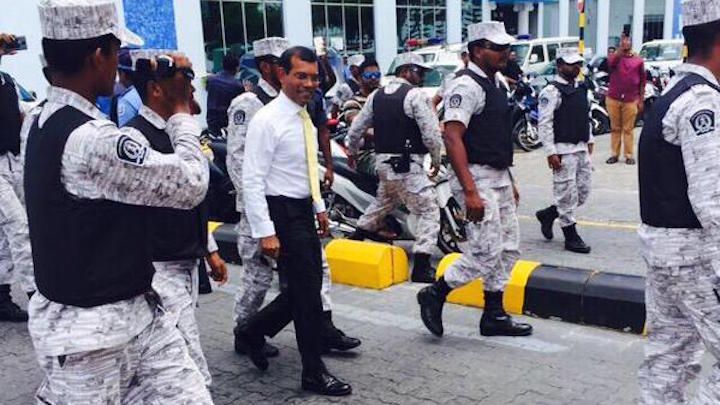Supreme Court to review Nasheed’s terrorism sentence
The Supreme Court has accepted the state’s appeal of former President Mohamed Nasheed’s terrorism conviction following a procedural hearing today.

25 Nov 2015, 09:00
The Supreme Court has accepted the state’s appeal of former President Mohamed Nasheed’s terrorism conviction following a procedural hearing today.
The apex court met with officials from the Prosecutor General’s office at 2pm today, nearly two months after the state appealed the conviction. Nasheed’s lawyers were not invited.
The move comes a day before a mass protest in Malé aimed at pressuring President Abdulla Yameen to release all political prisoners including Nasheed. His imprisonment, over the arrest of a top judge during his tenure, triggered mass protests earlier this year, and drew international criticism.
Nasheed’s lawyers have questioned why they were not called to the hearing today.
Become a member
Get full access to our archive and personalise your experience.
Already a member?
Discussion
No comments yet. Be the first to share your thoughts!
No comments yet. Be the first to join the conversation!
Join the Conversation
Sign in to share your thoughts under an alias and take part in the discussion. Independent journalism thrives on open, respectful debate — your voice matters.




